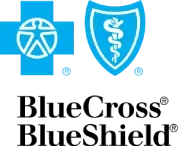
Meth Addiction Treatment
Meth (methamphetamine) helps people remain alert. It’s a stimulant drug, that improves people’s ability to focus. However, there is much evidence that this drug causes addiction that shouldn’t be left untreated.
Scroll
Methamphetamine, commonly known as meth, is a highly addictive stimulant that devastates lives, families, and communities. Overcoming meth addiction treatment requires a structured approach, combining medical, psychological, and behavioral therapies. If you or a loved one is struggling with meth abuse, understanding the available meth addiction treatment options can be the first step toward lasting recovery.
This guide explores the causes, symptoms, and most effective treatment for crystal meth addiction, offering hope for a healthier future.

What Is Methamphetamine?
Methamphetamine is a synthetic stimulant drug that belongs to the amphetamine class. It is chemically similar to amphetamine but has much stronger effects on the central nervous system. Meth works by flooding the brain with dopamine, a neurotransmitter responsible for pleasure, motivation, and reward. This surge creates an intense euphoric rush, along with increased energy, alertness, and confidence.
Recent data from the United Nations Office on Drugs and Crime (UNODC, 2021) reveals methamphetamine as the most widely used synthetic stimulant worldwide. While Europe represents a smaller market, consumption rates are skyrocketing in North America, Asia, and Australia, where amphetamine-type stimulants now dominate drug treatment cases.
Common Names for Methamphetamine
Meth goes by many street names, including:
- Crystal meth (shiny, rock-like form)
- Ice (pure, crystalline meth)
- Speed (powdered form)
- Crank (typically refers to injectable meth)
- Glass, chalk, uppers, Christmas tree
Forms of Methamphetamine
Meth can appear in different forms depending on how it’s made:
- Powder (white, yellow, or tinted)
- Crystal chunks (clear, blue-white, or pinkish “ice”)
- Pills (rare, but sometimes pressed into tablets)
Can Meth Be Addictive?
Yes, methamphetamine is frighteningly addictive—considered one of the most dependency-forming substances known. Here’s why:
- Instant Brain Rewiring
Meth doesn’t just stimulate dopamine release—it torrents 10-15 times more than natural rewards, overwhelming the brain’s pleasure circuits in minutes. This creates an immediate, hardwired association between meth use and survival-level satisfaction.
- One-Time Use Danger
Studies show 1 in 3 first-time users develop cravings after just one exposure—faster than heroin or cocaine. The brain essentially “saves” this extreme pleasure response like a corrupted file.
- Progressive Dependency
With repeated use:
- Dopamine receptors deteriorate
- Natural rewards (food, relationships) stop registering
- The brain becomes unable to function normally without meth
What Causes Meth Addiction?
Methamphetamine addiction doesn’t care about your background, bank account, or beliefs. It sinks its claws into people from all walks of life through multiple vulnerability factors:
Biological Factors
- Pre-existing conditions like depression or ADHD (the mind looks for relief)
- Natural brain chemistry that overresponds to stimulants
- Inherited addiction tendencies
- Brain chemistry imbalances
Environmental Triggers
- Peer pressure (especially in party/drug scenes)
- Childhood wounds that never properly healed
- Easy access to meth
Psychological Factors
- Using meth as emotional anesthesia for pain or stress
- Thrill-seeking behavior
- Believing meth enhances work, productivity or creativity
Signs and Symptoms of Meth Addiction
Methamphetamine doesn’t just change behavior—it transforms a person’s entire being. The warning signs creep in gradually, then suddenly become impossible to miss. When someone’s caught in meth’s grip, their body, mind, and daily life all send distress signals.
The Physical Transformation
Meth leaves an unmistakable trail of destruction on the body:
- Dramatic weight collapse – Users can drop 20+ pounds in weeks as the drug erases hunger while burning through energy reserves
- The meth mouth phenomenon – Not just bad teeth, but blackened, crumbling remains as acidic chemicals mix with teeth grinding and dry mouth
- Skin tells the story – Constant picking creates open sores that won’t heal, often concentrated on the face and arms
- Nervous system overload – Uncontrollable facial tics, jerky movements, and darting eyes that can’t focus
- The sniffles that never end – Chronic sinus damage from snorting leads to perpetual nosebleeds and a runny nose
Behavior Shifts That Scream for Help
The personality changes are often more devastating than the physical effects:
- The endless awake – 72+ hour marathons of activity followed by days of zombie-like crashing
- Money mysteries – Unexplained cash shortages, missing valuables, or sudden financial desperation
- Vanishing act – Disappearing for days, broken promises, and a trail of abandoned responsibilities
- The paranoid spiral – Convinced of nonexistent conspiracies, hearing voices, checking locks obsessively
Most users don’t recognize how far they’ve fallen until it’s too late. That’s why loved ones must trust their instincts; if something feels off, it probably is. Early action could mean the difference between recovery and tragedy.
When Do You Need Meth Addiction Treatment?
Recognizing when professional help is needed can mean the difference between recovery and devastating consequences. Meth addiction treatment becomes urgent when:
Critical Warning Signs
- Failed attempts to quit – Repeated unsuccessful efforts to stop using
- Health deterioration – Noticeable physical/mental decline from use
- Risk-taking behaviors – Driving under influence, unsafe sex, or criminal activity
- Isolation from loved ones – Withdrawing from family/friends to use
- Financial ruin – Spending life savings or going into debt for meth
- Loss of control – Using more/longer than intended
Emergency situations requiring immediate intervention:
- Psychotic episodes or violent outbursts
- Overdose symptoms (chest pain, seizures, unconsciousness)
- Suicidal thoughts or attempts
The sooner treatment begins, the better the outcomes. Studies show those who enter meth rehab programs within the first year of addiction have 3x higher recovery rates (SAMHSA, 2023).
Types of Meth Addiction Treatment
Methamphetamine doesn’t just create temporary cravings—it fundamentally rewires the brain’s reward system while simultaneously eroding a person’s psychological resilience. This dual assault requires a carefully orchestrated treatment approach that targets both the biological and emotional aspects of dependency.
1.Medical Detoxification (5-14 Days)
Meth withdrawal can be dangerous without supervision. Detox provides a safe, controlled environment to manage symptoms.
Key Components:
- 24/7 medical monitoring – Prevents complications like dehydration or cardiac issues.
- IV hydration & nutrition – Replenishes vital nutrients lost during addiction.
Medication management – Helps ease withdrawal symptoms, including:
- Antidepressants for severe depression
- Antipsychotics for hallucinations/paranoia
- Non-addictive sleep aids for insomnia
Detox alone is not enough, it must be followed by therapy and rehab to prevent relapse.
2.Inpatient Rehabilitation (30-90 Days)
Structured daily schedule – Eliminates triggers and establishes healthy routines.
Evidence-based therapies, including:
- Cognitive Behavioral Therapy (CBT) – Identifies and changes destructive thought patterns.
- Dialectical Behavior Therapy (DBT) – Helps manage emotions and reduce self-harm urges.
- Motivational Interviewing – Strengthens commitment to recovery.
- Group & family therapy – Rebuilds relationships and support networks.
- Relapse prevention training – Teaches coping strategies for real-world challenges.
- Success Rate: Patients who complete 90-day inpatient programs have 3x higher long-term recovery rates than those in shorter programs.
3.Outpatient Programs (3-12 Months)
- Intensive Outpatient (IOP) – 9-20 hours/week of therapy + drug testing.
- Partial Hospitalization (PHP) – Day programs with medical oversight.
- Standard Outpatient – 1-3 weekly sessions for ongoing support.
- Telehealth options – Remote counseling for those unable to attend in person.
- Flexibility allows patients to maintain work/school commitments while in recovery.
- Behavioral Therapies for Long-Term Success
- Contingency Management – Rewards sobriety with incentives (proven to cut relapse rates by 40%).
- Trauma Therapy – Addresses underlying PTSD or abuse contributing to addiction.
- 12-Step Programs – NA (Narcotics Anonymous) or CMA (Crystal Meth Anonymous) for peer support.
How Long Is Meth Addiction Treatment?
Recovery timelines aren’t one-size-fits-all—they depend on the person. Some need just a few weeks to reset, while others require months of intensive support.
Standard Treatment Phases & Durations
- Acute Detoxification (5-14 Days)
- Medically supervised withdrawal management
- Focuses on stabilizing physical health
- Includes nutritional rehabilitation
Primary Residential Treatment (30-90 Days)
- Intensive therapy in a meth rehab center
- Minimum recommended stay: 60 days
- Allows for neural pathway restructuring
Extended Care (90-180 Days)
- Recommended for chronic users
- Addresses deep-seated behavioral patterns
- Includes vocational rehabilitation
Aftercare (12-24 Months)
- Ongoing outpatient therapy
- Sober living arrangements
- Regular drug testing
Practical Steps for Supporting a Loved One
Watching someone you love struggle with meth is heartbreaking. You want to help, but where do you even start? Here’s what actually works based on real recovery stories and addiction specialists’ advice:
- Learn About Meth Addiction
Before you can help effectively, you need to understand what you’re dealing with:
- Meth doesn’t just “hook” people – it rewires their brain chemistry. That intense high? It floods the brain with 10x more dopamine than natural pleasures. No wonder quitting feels impossible.
- Withdrawal is brutal but temporary. The worst physical symptoms last about 2 weeks, but the emotional rollercoaster (crippling depression, zero motivation) can drag on for months. This is when most people relapse.
- Recovery isn’t linear. Expect good days and bad days. Progress looks more like a messy scribble than a straight line.
Pro tip: Watch some addiction neuroscience videos on YouTube. When you understand what’s happening in their brain, you’ll be way more patient.
- The Right Way to Do an Intervention
Forget what you’ve seen on TV. Effective interventions require careful planning:
- Assemble a small team (4-6 max) of people your loved one respects.
- Write down what you want to say beforehand – stick to “I” statements.
- Have a treatment plan ready to go (research rehab centers in advance).
- Be prepared to act immediately if they say yes (have bags packed, transport arranged).
- Make Your Home a Recovery Zone
If they’re coming home after treatment, small changes can make a big difference:
- Toss anything remotely drug-related.
- Keep the fridge stocked with easy, healthy snacks.
- Set up a chill space with comfy seating and soft lighting.
- Money Matters
Addiction is expensive. Protect yourself and your loved one:
- Help them get a basic phone with limited minutes.
- Consider giving grocery store gift cards instead of cash.
- If they work, help set up direct deposit to a savings account they can’t easily access.
- Find the perfect insurance agency and get the most out of it.
- The Right Way to Do an Intervention
Forget what you’ve seen on TV. Effective interventions require careful planning:
- Assemble a small team (4-6 max) of people your loved one respects.
- Write down what you want to say beforehand – stick to “I” statements.
- Have a treatment plan ready to go (research rehab centers in advance).
- Be prepared to act immediately if they say yes (have bags packed, transport arranged).
- Make Your Home a Recovery Zone
If they’re coming home after treatment, small changes can make a big difference:
- Toss anything remotely drug-related.
- Keep the fridge stocked with easy, healthy snacks.
- Set up a chill space with comfy seating and soft lighting.
- Money Matters
Addiction is expensive. Protect yourself and your loved one:
- Help them get a basic phone with limited minutes.
- Consider giving grocery store gift cards instead of cash.
- If they work, help set up direct deposit to a savings account they can’t easily access.
- Find the perfect insurance agency and get the most out of it.
Tough love truth: You’re not helping by bailing them out of financial messes. Consequences can be powerful motivators.
- Take Care of You
This is the part everyone skips, but you’ll burn out fast without self-care:
- Find your own support group (Al-Anon, SMART Recovery Family).
- Keep up with your hobbies and friends.
- Set firm boundaries (example: “I love you, but I won’t lie to your boss for you”).
- See a therapist who understands addiction.












